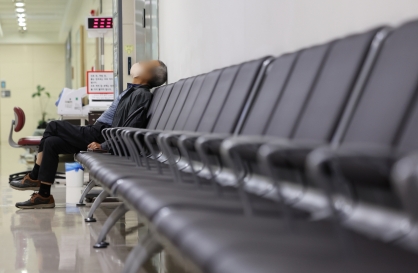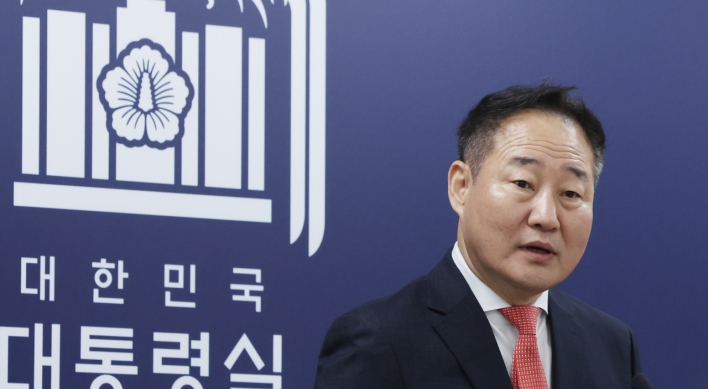S. Korea issues nonbinding social distancing ultimatum
KCDC says get used to social distancing, it’s new norm now
By Kim ArinPublished : March 22, 2020 - 18:19

South Korea has called for expanded public participation in social distancing for the next two weeks, as the country witnesses a wave of community spread and imported infections leading to a resurgence in new cases of COVID-19.
In announcing the 15-day plan for more stringent social distancing, Prime Minister Chung Sye-kyun said Saturday that adhering to the practice was of utmost importance to stem the spread of the disease before the spring semester kicks off on April 3.
This means canceling nonessential plans and outings -- including dining out -- except for grocery shopping, visits to doctors or commutes to and from work, he said. Going outdoors was OK only under the condition that a 2-meter distance is maintained from others.
Although the guidance is largely a reiteration of measures promoted by health officials for the past three weeks, the government expects the short-term boost in practice -- if strictly followed -- will help lessen the strain on the already overwhelmed health care system.
“The speed of spread needs to be slowed to a level where the number of patients is maintained below the health system’s capacity,” Chung said.
Daegu City said as of Saturday, 110 COVID-19 patients were still waiting to be admitted to hospitals. While this is an improvement from earlier this month, when the number of patients without beds hit over 2,000, denied hospital care can lead to avoidable fatalities especially among at-risk groups.
Last week, an 86-year-old Daegu woman died after resorting to self-isolation despite being confirmed with the virus on March 8. She could not receive treatment until she was brought to the emergency room on March 11 for breathing difficulties.
Korea’s virus strategy has encompassed testing and isolating without enforceable restrictions on movements or travel bans, even in its worst-affected city of Daegu at its peak when single-day increases in cases marked over 900.
But health officials are now rethinking keeping social distancing optional, as over 80 percent of cases are linked to activities involving social contact.
“So far, social distancing has not been rigorously put in place. People are still turning up in places where the risk of catching the virus is high -- such as bars and nightclubs -- in big numbers,” a Health Ministry official told The Korea Herald. “At this rate, we don’t know when the next ‘Shincheonji’ is going to happen.”
Shincheonji is a messianic Christian church that is tied to at least 2,400 cases here.
The ministry official said imposing measures to improve compliance with social distancing, which are not legally binding at the moment, was “not completely out of the question” if the outbreak showed no signs of a considerable decline at the end of the 15-day ultimatum.
A lowered trend in virus cases as of recent has led to Koreans, those in younger age groups in particular, easing up on social distancing.
This complacency is unwarranted, according to the World Health Organization.
“Younger people are not spared,” Dr. Tedros Adhanom Ghebreyesus, director general of the WHO, said in a briefing over the weekend.
“Data from many countries clearly show that people under 50 make up a significant proportion of patients requiring hospitalization,” he said.
Experts worry porous borders pose threats of a second or third wave of the disease.
“In a hyperconnected world we live in, infections coming in from abroad are inevitable,” said Choi Jae-wook, a preventive medicine specialist at Korea University Hospital, calling for a mandatory quarantine to be implemented on visitors and returnees from all affected regions.
Kim Sang-hee, the head of Incheon Airport’s office for virus screening, said in a meeting with the prime minister on Thursday that the worsening pandemic was prompting a spike in number of incoming passengers.
“On Wednesday, about a third of 300 passengers from Europe were symptomatic,” she said. “There are only about 50 negative-pressure rooms at the airport, which cannot possibly accommodate all those arriving with symptoms.”
The Korea Centers for Disease Control and Prevention said 15 of the 98 new cases confirmed Saturday came from abroad.
The centers’ Vice Director Kwon Jun-wook said in a briefing last week that the reality of a virus pandemic demanded customs such as frequently washing hands and social distancing become “the new norms to get accustomed to.”
“The worst imaginable things are coming true with the COVID-19 crisis. We are now seeing an explosive surge in cases around the world, the kind of which Korea has earlier experienced. The disease control headquarters is determined to win the battle against the virus, and eventually, there will be a vaccine and treatment,” he said.
“But until then, the key pillar of virus response has to come from the public -- through strict observation of the practice of social distancing and good hygiene.”
By Kim Arin (arin@heraldcorp.com)






![[K-pop’s dilemma] Can K-pop break free from ‘fandom’ model?](http://res.heraldm.com/phpwas/restmb_idxmake.php?idx=644&simg=/content/image/2024/05/09/20240509050541_0.jpg&u=20240509173751)












